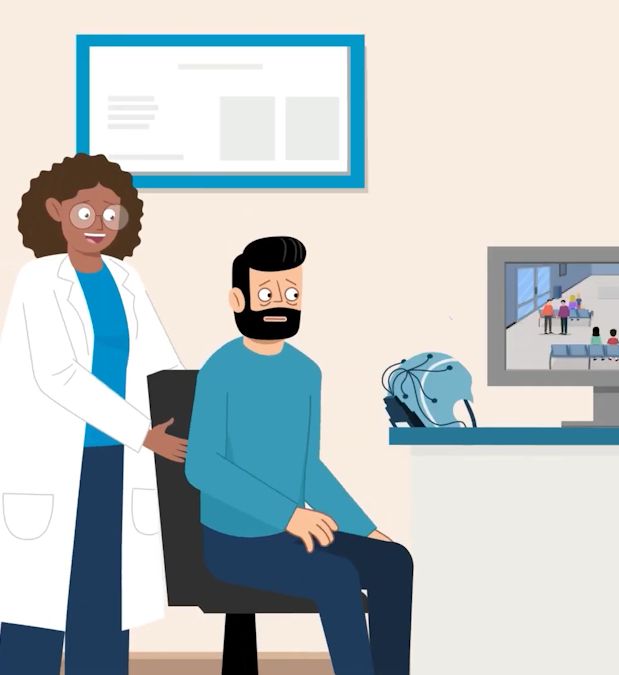The effects of post-traumatic stress disorder (PTSD) can be disabling as a victim relives the emotional upheaval of a previously experienced incident. Ketamine therapy emerges as a ground-breaking new treatment.
The effects of post-traumatic stress disorder (PTSD) vary widely between patients, ranging from mild mood disturbances to full-on disabling mental crises. An anxiety disorder affecting nearly 9% of the American population.
While psychotherapy helps to desensitize a patient from their PTSD triggers, it’s often harder to stop the body’s involuntary responses to stress. The typical fight-or-flight response after a PTSD episode is chemical and out of proportion to the needs of the emotional flashback. A patient loses the normal balance of neurotransmitters, contributing to the elevated stress levels they experience.
At Keta Medical Center, we see fast and effective results when treating PTSD with ketamine therapy. A commonly used surgical anesthetic, ketamine works on a different class of neurotransmitters than conventional antidepressant medications. It’s ground-breaking new help for patients with PTSD.
Ketamine’s role in treating depression
Developed as a safe and stable anesthetic, ketamine also has uses as an antidepressant that adds a new treatment weapon, since it represents a new approach to rebalancing brain chemistry. Traditional antidepressants work in similar ways on a common set of neurotransmitters and their receivers. Even when these drugs work, it can be weeks before a patient sees improvements.
One of the startling benefits of ketamine is its quick response. When it’s administered in an intravenous (IV) infusion, you’ll start to feel relief during or soon after treatment, days or weeks ahead of the pace of conventional medications.
The nature of PTSD
Depression can be a symptom of PTSD, and they share a common connection with anxiety. This likely led to the connection between ketamine therapy and PTSD treatment. Unlike clinical depression, PTSD has identifiable reasons behind the physical and emotional symptoms.
With PTSD, unwanted memories frequently recur, sometimes to the point of flashback so the upset and anguish may be as intense as the original incident. The experiences are strong enough to cause you to avoid people and situations that trigger a response.
You can develop emotional and physical responses that lead to self-destructive behaviors and negative thoughts and feelings. These could be significant enough to affect your ability to function and enjoy life.
Ketamine and PTSD
The Mount Sinai Health System in the metropolitan New York City area performed clinical testing to discover the effects of ketamine on PTSD, first in a single-dose study and more recently in a repeated dose trial.
Results are dramatic from both studies, showing rapid reduction of symptoms within 24 hours in the single-dose study and in the repeated dose trial. Ketamine reduced PTSD symptoms by at least 30% for over two-thirds of those receiving infusions, compared to just one in five of the control group showing similar improvements over the two-week study.
Call or click to schedule a consultation to learn more about our treatments and to determine your candidacy for treatment. As specialists in ketamine therapy, we at Keta Medical Center can help you with IV ketamine infusions, so book your appointment now.





